
Fear and Phobia: What’s the Difference?
A phobia is an aberrant or extreme fear of something. In some cases, the fear is so intense that it interrupts normal activities.
Learn More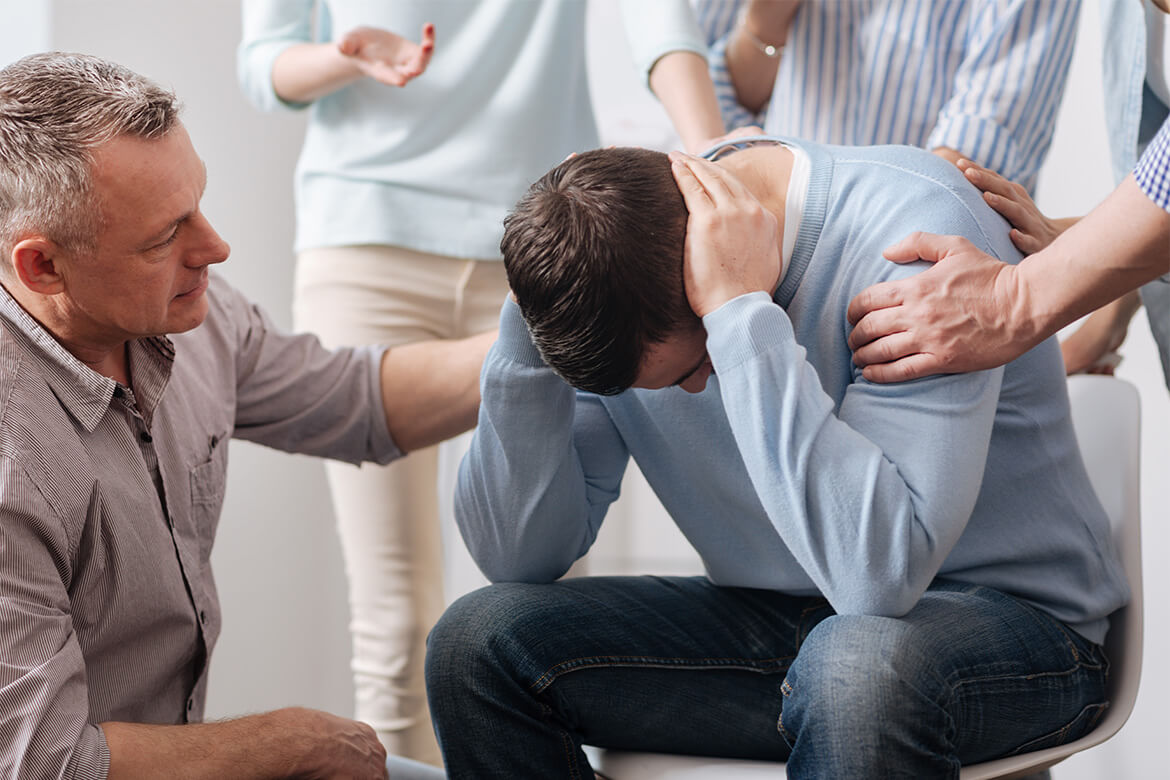
Bipolar Disorder Q&A
What Are the Types of Bipolar Disorder?
Did you know there is more than one type of bipolar disorder? Here are a few different types of bipolar disorder:
- Bipolar I Disorder: Individuals with bipolar 1 disorder experience manic episodes that last at least 7 days. Sometimes, severe manic symptoms may lead to the need for immediate hospital care. The depressive episodes may last up to two weeks.
- Bipolar II Disorder: This type of bipolar disorder is characterized by a pattern of depressive episodes and hypomanic episodes (not the same intensity of the manic episodes seen in bipolar 1 disorder)
- Cyclothymic Disorder: These symptoms do not meet the diagnostic requirements for a hypomanic episode and a depressive episode.
What Are the Signs and Symptoms of Bipolar Disorder?
In a manic episode, symptoms include:
- Feelings of being high or even elated
- Increased irritability
- Racing thoughts
- Increased activity levels (and decreased sleep)
- Increased chance of engaging in risky behaviors
On the other hand, symptoms during a depressive episode include:
- Feeling down or blue
- Increased need for sleep
- Slowed speech
- Difficulty making decisions or concentrating
- Feelings of hopelessness
According to the National Institute of Health, some individuals may even experience symptoms from both groups during the same episode.
How Many People Are Diagnosed with Bipolar Disorder?

There is no cure for bipolar disorder, but you can manage the condition and lead a healthy, productive life with the right treatment. Due to the seriousness of bipolar, staying diligent with treatment (including medication) is crucial. Bipolar disorder affects about 2.3 million Americans. Left untreated, suicide is the leading cause of premature death in individuals with bipolar.But the good news is that bipolar is treatable. The National Advisory Mental Health Council estimates that 80% of those diagnosed and receive treatment have a high success rate of treatment with reduced relapses and hospitalizations.
How Is Bipolar Treated?
Because bipolar disorder can profoundly impact your life, it’s essential to work with a compassionate and experienced provider who understands the complexities of this disorder. At Next Step 2 Mental Health, we know that living with bipolar can be challenging, but the right treatment can help.Treatments include:
- Medication
- Psychotherapy
- Therapy
In addition to the above treatments, it’s important to lead a healthy lifestyle with regular experience and a well-balanced meal. If you need help sticking with your treatment, let your provider know. It’s essential to continue with your medication, even if you’re feeling good.
If – at any time – you experience a mental health crisis, call 9-1-1.
If you or a loved one are experiencing any of the signs of Bipolar Disorder – or need help managing Bipolar Disorder — we can help you take your next steps. Call our office today at 502-339-2442, or book an appointment online.

9 New Year’s Resolutions that Put Your Mental Health First
2021 is right around the corner … finally! Are you making resolutions this year? Here are nine New Year’s Resolutions that put your mental health first.
Catch Your Zzz’s
It’s no secret that getting enough sleep supports your physical well-being, but it also affects your mental health too. Insufficient sleep can increase your risk of a number of unfavorable conditions, including heart disease, type 2 diabetes, and depression. Some psychiatric conditions (including bipolar disorder, anxiety disorders, and depression) can cause sleep problems. In addition, insufficient sleep can even exacerbate the symptoms of many mental conditions including depression, anxiety disorders, and bipolar disorder.
So how much sleep do you need? It depends on your age. The National Sleep Foundation suggests the following:
| Your Age | Recommended Hours of Sleep from the NSF | |
|---|---|---|
| Newborn | 0–3 months | 14–17 hours |
| Infant | 4–12 months | 12–16 hours |
| Toddler | 1–2 years | 11–14 hours |
| Preschool | 3–5 years | 10–13 hours |
| Elementary School Age | 6–12 years | 9–12 hours |
| Teen | 13–18 years | 8–10 |
| Adult | 18–60 years | 7–9 hours |
| 61–64 years | 7–9 hours | |
| 65 years and older | 7–8 hours | |
If you make “practice better sleep hygiene” as one of your New Year’s resolutions, here are a few tips you can use to help you accomplish this:
- Try to go to bed at the same time every night
- Avoid blue lights for 1-2 hours before bed (You can learn more about warm lights in this post: Do Warm Lights Help You Sleep Better?)
- Sleep in a cool, dark room (cool refers to a few degrees cooler than room temperature)
- Exercise during the day
- Spend some time in the sunshine (it helps to reset your circadian rhythm)
Exercise More

Exercise not only helps you sleep better at night, but it also supports your mental health in other ways too. Studies show that aerobic exercises help to reduce symptoms of anxiety and depression. Exercise also:
- Boosts your mood
- Reduces stress
- Reduces the likelihood of social withdrawal
- Boosts self-confidence
Examples of aerobic exercise include running, jogging, dancing, walking, hiking, swimming, and playing tennis.
If you make “exercise more” as your resolution, remember that exercise regimens don’t have to be arduous. There are plenty of fun ways to add more physical activity into your daily routine. Even walking your dog an extra 10 minutes can add up over time.
Find a New Hobby
Did you know that hobbies are good for your mental health? According to the Australian Government Health Department, hobbies can boost self-confidence, promote feelings of relaxation, reduce stress, and improve overall happiness.
Here are a few examples of popular hobbies:
- Sports and exercise
- Music
- Art, including drawing, sculpting, painting
- Knitting and crocheting
- Baking
- Reading
- Journaling
- Gardening
- Fishing
You don’t need to be an expert to participate in a hobby. It’s about spending time doing an activity you enjoy.
Meditate
According to Mental Health America, meditating is great for your mental health. It can reduce stress, reduce the symptoms of anxiety and depression, and even help lessen chronic pain.
If “meditate more” is your resolution, you can find many ways to include more meditations into your weekly routine:
- Apps like Headspace
- Books
- Online guided meditations
Get a Planner
Getting organized can help you organize thoughts and reduce anxiety from last-minute scrambling or missed appointments. Keeping a planner can also support your mental health because you can stay on top of appointments, medication schedules, etc. Using a planner (either paper or through an app) can help you stay organized when your life — and health — feel overwhelming.
Volunteer
Did you know that volunteering also supports your mental health? According to the Mayo Clinic Health System, volunteering decreases the risk of depression.
If “volunteer more” is one of your New Year’s resolutions this year, you don’t even have to leave home. Here is a list of 20+ virtual volunteer opportunities.
Get Back to Nature

Spending time in nature can also support your mental health. Sunshine and fresh air can reset your circadian rhythm, which helps you get enough sleep. The experts at Harvard suggest that even 20 minutes spent outside can make a big difference.
If “spend time in nature” is one of your resolutions, read this article to explore a few ideas for spending time outside.
Develop an Attitude of Gratitude
Giving thanks and cultivating an attitude of gratitude can increase your happiness, according to the experts at Harvard.
If “be more thankful” is one of your New Year’s resolutions, you can boost your gratitude by writing more thank you notes, meditating, and keeping a gratitude journal (and re-reading on days you feel blue).
How to Keep a Gratitude Journal (for You and Your Kids!)
Keeping a gratitude journal is a great way to combat anxious thoughts. In fact, writing in a gratitude journal is shown to improve emotional resilience and reduce stress. There are many ways to keep a gratitude journal, but here are some tips:
- Journal first thing in the morning to start the day on a positive note
- End the day with a quick reflection about things you were grateful for over the course of the day
- If your child can’t write yet, she or he can draw pictures instead
You can download our free printable Gratitude Journal. Print out the journal and let your child explore the concept of gratitude. With 50+ pages, your child will have nearly two months of journaling!
Practice More Positive Self-Talk
How you talk to yourself matters, and incorporating more positive self-talk can make a big difference.
If “practice more positive self-talk” is one of your New Year’s resolutions, here are ten to get you started:
- I am capable and strong.
- Attempting to do X took courage, and I am proud of myself for trying.
- Even though this wasn’t the outcome I anticipated, I learned a lot about myself during this process.
- I am proud of how far I have already come even if I still have a ways to go.
- I can get through this.
- Tomorrow is another opportunity to try again, and I can utilize the lessons I learned from today.
- I will do my best.
- I can’t control what other people say, do, or think, but I can control my thoughts, words, and actions.
- This is an opportunity for me to try a new way to do X.
- I am learning from this situation, and I can grow as a person.
The Best New Year’s Resolution: Ask for Help When You Need It
Even with all of these resolutions, it’s not always enough. The best thing you can to do support your mental health is to ask for help if you need it. As a multidisciplinary practice, we can support a variety of mental health conditions with therapy, medication, lifestyle changes, coaching, and more.
Here at Next Step 2 Mental Health, we provide comprehensive mental health care for adults (and children too!). We’re just a call or click away. Call 502-339-2442 or send us a message to request more information.
Learn More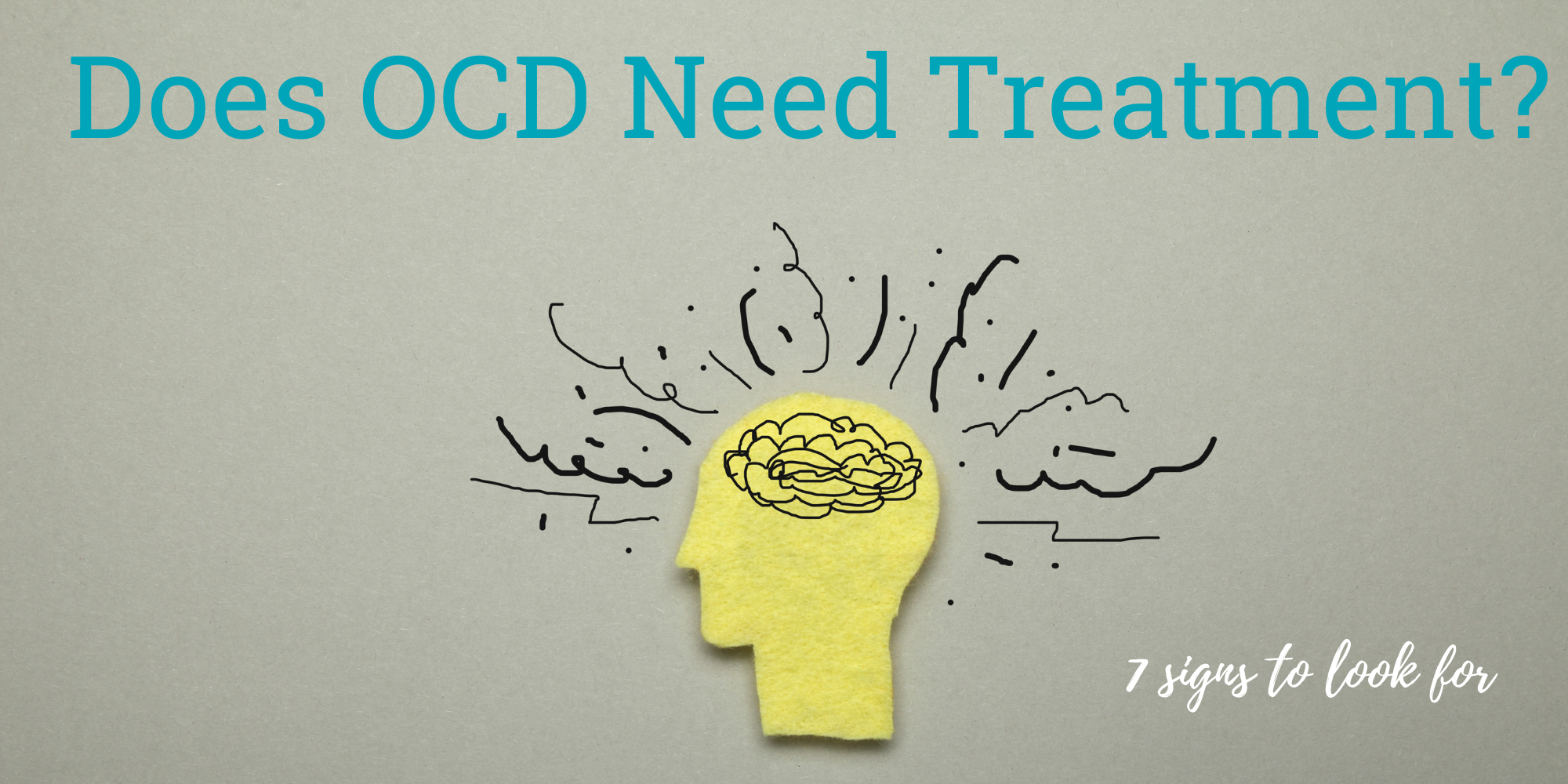
Does Your OCD Need Treatment?
Obsessive-compulsive disorder (OCD) is an anxiety disorder marked by recurrent intrusive thoughts and fears that lead to ritualistic behaviors. At first, you might find the obsessions and compulsions are manageable, but left untreated, the patterns of OCD can impact all aspects of your life. Here at Next Step 2 Mental Health, our multidisciplinary team excels when it comes to diagnosing and treating OCD. If you spot the signs of OCD in you or your child, it’s never too early to receive professional help.
If you’re unsure if your OCD requires treatment, here are seven signs that your OCD could benefit from medical intervention.
But First… What Is OCD?
Before we dive into the signs that OCD requires treatment, let’s first cover what OCD is. OCD is short for obsessive-compulsive disorder. Watch the video below to hear what the International OCD Foundation says about the disorder.
As discussed in the short video clip, OCD is characterized by obsessions (intrusive, unwanted thoughts) and compulsions (behaviors).
Common obsessions include:
| Contamination | Losing Control | Harm | Perfectionism | Scrupulosity | Unwanted Sexual Thoughts | Other |
| Fear of germs | Fear of acting on an impulse to harm oneself or others
|
Fear of being responsible for something terrible happening | Fear of losing or forgetting important information when throwing something out
|
Concern with offending God
|
Forbidden or perverse sexual thoughts or images | Superstitions |
| Disease | Fear of violent or horrific images in one’s mind
|
Fear of harming others because of not being careful enough | Concern with exactness | Concern about blasphemy | Forbidden or perverse sexual impulses about others
|
Concern with getting a physical illness (not related to the diseases in the first column pertaining to germs) e.g., cancer
|
| Concern with household or environmental contaminants | Fear of stealing things | Fear of losing things | Excessive concern with right/wrong or morality
|
Obsessions about aggressive sexual behavior towards others
|
Concern with unlucky items, numbers, or colors | |
| Dirt | Fear of blurting out insults or curse words | Concern with a need to know | Inappropriate sexual obsessions | |||
| Body Fluids | Inability to decide whether to keep or to discard things
|
Now that we’ve covered what OCD is and examples of common obsessions, let’s explore the signs that your OCD isn’t under control.
Signs Your OCD Requires Treatment
1. You Can’t Control Your Obsessions Or Your Behaviors

The types of obsessions or compulsions can vary from person to person. Regardless of which obsessions you struggle with, if you can no longer control them, then you might benefit from help.
2. You Spend Too Much Time Thinking about Your Obsessions
How much is “too much time” thinking about your thoughts? If intrusive thoughts interfere with your daily life or take up more than one hour (per the National Institute of Mental Health (NIMH)), consider asking for help.
3. Your Anxiety Isn’t Relieved by the Compulsions
Although OCD and anxiety are often discussed as separate conditions, OCD is a type of anxiety disorder. Other anxiety disorders include generalized anxiety disorder (GAD), post-traumatic stress disorder (PTSD), social anxiety disorder, and panic disorder. Many people who complete ritualistic behaviors report that they do it because it helps to ease their anxiety. They also note that refraining from the behavior (whether that’s checking the door or retracing steps, etc.) increases their feelings of anxiety.
If you feel trapped in a cycle of anxiety and compulsions, there is hope. OCD treatment, which may include a combination of therapy, CBT, medication, and even lifestyle changes, can help you learn to manage your thoughts and behaviors to free you from the control of anxiety.
4. Your Career Is Suffering
Intrusive thoughts and ritualistic behaviors can suck up a lot of your time at work. For example, ruminating on obsessions can take up hours of your time and prevent you from getting your work done. Getting the right OCD treatment can help you manage your anxiety, which can lead to a more productive work day.
5. Your Personal Relationships Are Suffering
OCD doesn’t just impact your work performance. Unmanaged OCD can start to affect your relationships with your spouse, family members, and friends. You might consider OCD treatment if:
- Your thoughts take up the time you’d normally spend with your family
- Your compulsions limit your ability to enjoy time with friends or family
- Your OCD is getting in between you and your spouse
6. Your Child Continually Asks If He’ll Be Okay
Children can also be diagnosed with OCD. Children may struggle with many of the same intrusive thoughts as adults, including fear of contamination and fear of harm. You might suspect your child struggling if he continually asks if “he’ll be okay”. According to the International OCD Foundation, this can be a sign of pediatric OCD.
Other signs of OCD in children include:
- Excessive checking (re-checking that homework is done, lights are off, the door is locked, etc.)
- Excessive washing, tidying up, and/or cleaning
- Repeating ritualistic behaviors until they are “just right” … or starting over again until they are right
- Obsessing with rearranging things
- Mental compulsions which may include excessive praying or mental reviewing
- Frequent apologizing
- Reciting lucky words or numbers or phrases; using lucky items, etc.
If you notice any signs of OCD in your child, seeking professional treatment can help restore the quality of your child’s life.
7. You Used to Have OCD Managed, But Not Anymore
Even if you previously had control over your OCD — either with therapy and lifestyle changes — you might benefit from additional treatment, especially if your symptoms are regressing. If your current treatment plan is no longer working for you, we can help you get the relief you need. Many people find that a combination of therapy and medication is beneficial.
How Is OCD Treated?
At Next Step, we know how profoundly OCD can impact all aspects of your life, and if you’re struggling now, you don’t have to wait until it gets worse before reaching out for help. Our compassionate, non-judgmental team offers a variety of OCD treatments, including medication and therapy.
To reclaim control over your OCD, call our Louisville, Kentucky office at 502-339-2442. You can also request an appointment online.
Learn More
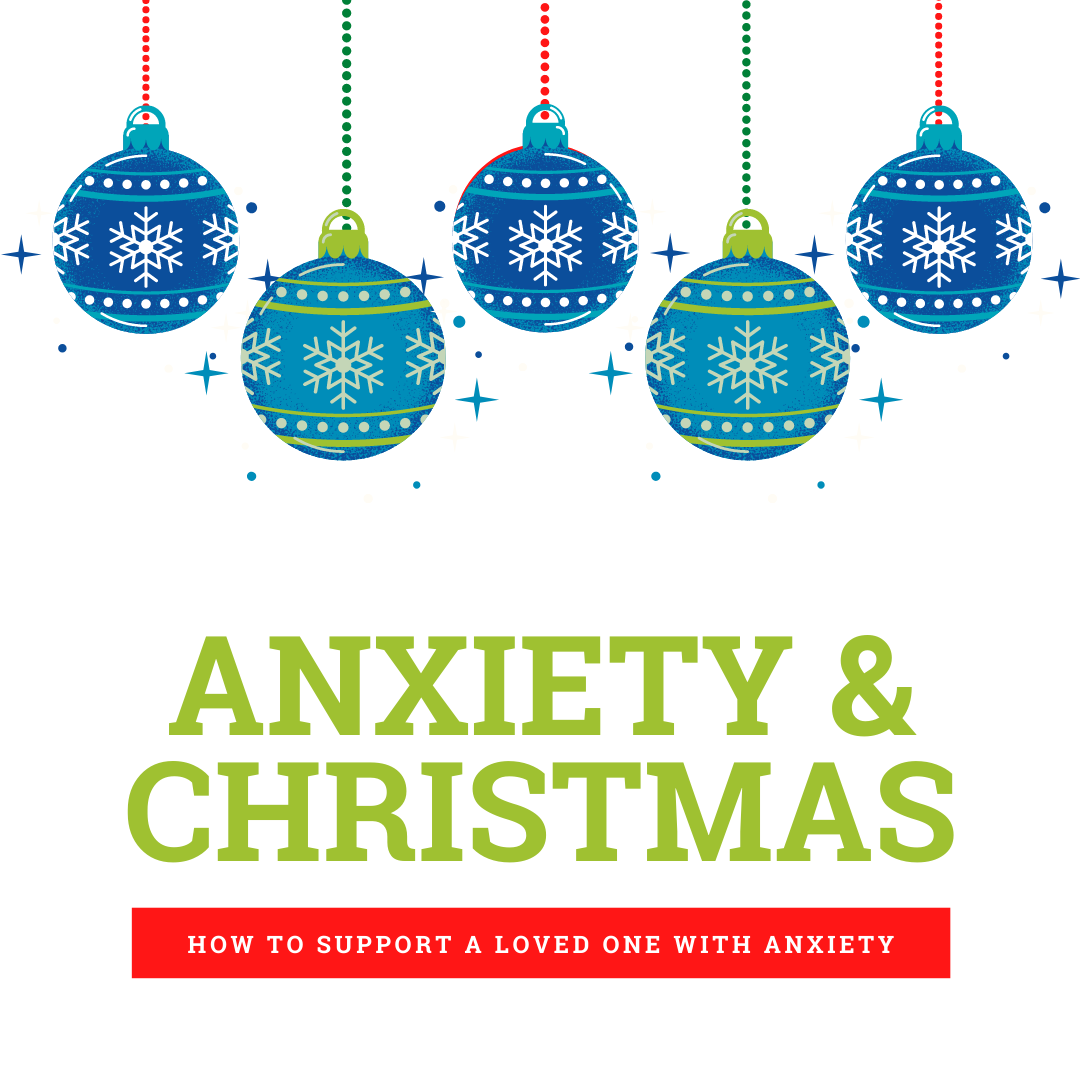
Anxiety at Christmas: What Your Loved One Wants You to Know about Anxiety
A United Kingdom-based mental health charity, Mind, explored the connection between anxiety and the holiday season. Let’s take a look at a few stats that highlight how the festive season impacts people living with anxiety:
- Three out of four people who have a diagnosed anxiety disorder report trouble sleeping around the holidays
- More than 60% of the surveyed participants reported a panic attack during the holiday season
- 36% of participants admitted to engaging in self-harm to cope, and another 52% considered self-harm
With these stats in mind, we want to shed light on how the holidays can impact those with anxiety – and what you can do to make the holidays a little easier for them.
1. Opening Gifts
Giving and receiving gifts is a hallmark of the Christmas season. It can be an exciting, joyous time, but for some people with anxiety, opening gifts can be a trigger. For example, it can be very uncomfortable to have all eyes on you as you open up a present. You’re on the spot. You might worry if you react the right way. What if you don’t love the gift? What if they don’t love the gift? Even if you love opening gifts, it’s important to recognize that not all people love the spotlight.
How to support a loved one with anxiety: If you know that opening gifts is anxiety-producing, ask your loved one how they’d like to handle the situation. For example, everyone opening their own gifts at the same time can be much less stressful than watching each person one at a time open presents.
2. Socializing at Christmas Parties
Granted this year’s holiday party schedule is likely very different due to the pandemic, there are still plenty of ways to socialize at Christmas: social distancing get-togethers, virtual parties via Zoom, or increased phone calls with extended families and friends.
Socializing – whether that’s in person or virtually – can be overwhelming for those with social anxiety.
How to support a loved one with anxiety: Avoiding all socializing (whether that’s at Christmas or any other time of the year) is tempting for those with social anxiety disorder, but avoidance isn’t helpful in the long run. Gently encourage your loved one to participate, and how ask how you can support them. Some people may find that arriving early to a get-together is easier because you can greet people one-at-a-time as they arrive rather than all at once.
3. Christmas Dinner Stress

The pressure is on! Planning and cooking a Christmas dinner can be stressful. It’s not uncommon to lose sleep over planning a big meal. Planning the menu can be overwhelming especially if Uncle Tim doesn’t eat meat and Aunt Peg is doing keto – trying to please everyone can be a nightmare! The Irish have a term for this: Christmas Day Syndrome.
How to support a loved one with anxiety: Be understanding of the task at hand. Not everyone asks for help, so don’t hesitate to offer your help first. Doing as much prep as you can early can also help alleviate headaches.
4. Financial Stress
Financial strain can be a big source of anxiety, and the holidays can really stretch the budget. Between gifts, decorations, and food for Christmas parties, it can be overwhelming to see so much money spent so quickly.
How to support a loved one with anxiety: If you and your partner are sharing a budget for Christmas gifts, you can eliminate some strain by setting a budget and sticking with it. A budget can help eliminate the surprise and worry associated with a large credit card bill after Christmas.
5. Christmas Busy-ness
The weeks and days leading up to Christmas can be very busy. Between working regular hours, preparing for family gatherings, shopping, decorating, wrapping presents – there’s a lot going on! Busy schedules can cause stress. In fact, 81% of the UK Mind survey participants noted that most anxiety was triggered by the increased stress load.
How to support a loved one with anxiety: Help your loved divvy up any tasks to help lighten their load. Remind your loved one that you don’t have to do every single holiday tradition if it causing more stress than joy.
Anxiety Isn’t Just “Overly Stressed”
Anxiety can be very personal; what triggers one person doesn’t necessarily trigger another person. If your loved one is dealing with increased anxiety during Christmas, remember it’s not that he or she hates the holiday. The best thing you can do to support a loved one is to be considerate of how they feel even if you don’t understand why. Let your loved one know that you are there to talk. You can also take the time to learn more about anxiety disorders. Anxiety can be a severe, debilitating condition. While stress can trigger anxiety, it is more than just being “overly sensitive” or “worrying too much”.
Anxiety at Christmas … and Beyond the Holidays
Here at Next Step 2 Mental Health, we want to help you feel better no matter what time of year it is. If you or a loved one are struggling with anxiety, we encourage you to seek the help you deserve. Remember, seeking help is always a sign of strength. We take a multidisciplinary approach when it comes to managing anxiety. From medication management to therapy (including CBT) to online courses, we are with you every step of your journey.
Give us a call at our Louisville, Kentucky office at 502-339-2442, or send us a message to request more information.

What Is a Manic Episode?
Bipolar disorder affects 4.4% of all adults at some point throughout their life, and about 2.8% of adults have been diagnosed with bipolar disorder in the last year, according to the National Institutes of Mental Health. Out of the adults diagnosed with bipolar disorder, nearly 83% experience extreme disruptions to their daily routines. Bipolar disorder is a mental health illness characterized by extreme shifts in mood that vacillate between manic episodes and depressive episodes, although each episode impacts your quality of life differently.
If you or a family member are newly diagnosed with bipolar disorder, you might have questions about what each episode is. In this article, we’ll help shed light on what manic episodes are and what you can do to reduce their impact on your quality of life.
What Is a Manic Episode?
According to the American Psychiatric Association’s Diagnostic and Statistical Manual of Mental Disorders (DSM-5), a person must have experienced at least one episode of mania or hypomania in order to be diagnosed with one of the bipolar disorders (in addition to the depressive episodes too.) A manic episode is more than just a mood swing. It is an emotional state in which a person may feel elevated or even irritable. Manic episodes can last anywhere from four days to a few months.
At first, you might not think that an elevated mood is a bad thing, and because of this, many people might not seek help at first. However, it’s important to note that mania isn’t just “feeling good”; rather, these symptoms are a departure from what’s normal for your i.e., your normal actions or behaviors.
Mania can be so intense that it can impact your performance at work and interferes with your relationships with friends and family.
Signs of a Manic Episode
Dr. Briscoe continues, “During [a manic episode], the person may experience excessive amounts of energy, a decreased need for sleep, euphoria (an unnaturally elevated mood), irritability, and/or excessive involvement in projects or activities. These are just examples, and not everyone shows every symptom.” Below, we’ll take a look at the common, observable signs of a manic episode.
1.Decreased Need for Sleep
Depression — whether that’s seasonal affective disorder, major depression, or a bipolar depressive episode — can increase your need for sleep. However, a person in the midst of a manic episode may demonstrate little need for sleep. He or she may go to bed and wake up just an hour or two later, wide awake and ready to continue on a project or activity. Increased energy is listed as the primary criterion for bipolar disorder, according to this study.
2. Racing Thoughts
This is another common sign of a manic episode. Racing thoughts can also lead to increased speed at which your loved one is talking.
3. Easily Distracted
All of those racing thoughts can lead to another sign of mania called flight of ideas. To keep up with the racing thoughts, the mind seems to jumps quickly from one idea to the next. This can make your loved one appear to be easily distracted.
4. Engaging in Activities that Hold the Potential for Painful Consequences
Risky behaviors include unrestrained shopping sprees, gambling, making foolish business investments, or even hypersexuality. Risky behaviors can include illicit behaviors, but it’s not limited to them. For instance, an unrestrained shopping spree could be considered a sign of a manic episode, particularly if you’re normally not a shopper.
5. Increased Irritability and Hostility
During a manic episode, it’s normal to feel elevated and happy and good, but it’s also normal to feel irritable. However, if you notice that a loved one is acting aggressively or mentioning thoughts about suicide, it’s important to recognize these signs as a mental health emergency.
Seek immediate psychiatric care if you or a loved one notice hostility or concerns about suicide.
The National Suicide Prevention Lifeline is a United States-based suicide prevention network of over 160 crisis centers that provides 24/7 service via a toll-free hotline with the number 1-800-273-8255. It is available to anyone in suicidal crisis or emotional distress.
6. Delusions of Grandeur
Delusions of grandeur are spurred by an inflated sense of self. Examples of delusions of grandeur include:
- Quitting your job suddenly to run for a political office in your state
- Keeping the notion that you are friends with a celebrity
How do you know if a thought is a delusion of grandeur? Remember, mania departs from what is normal behavior for you or a loved one. For example, if your loved one has always been interested in politics and has pursued a career in politics, then running for a political office isn’t out of the ordinary. However, if your loved one has never been interested in politics and then quits his job suddenly, that could be a red flag.
7. Focus on Goal-Oriented Tasks
You might notice your loved develop an obsession for a specific activity or project. It’s normal to feel excited about a project you’re passionate about, but the difference here is that during mania the hyperfocus on the task interferes with your daily life. For example, you might so focused on a specific project that you miss work or skip out on familial obligations to focus on the task at hand.
Why Treatment Matters for Manic Episodes
 “One of the most dangerous aspects is that multiple untreated manic or hypomanic episodes can be very harmful to the brain. They can sometimes even lead to cognitive impairment and/or decreasing IQ over time. (This can happen because leaving mania untreated is a lot like running a car eighty miles an hour all day, every day. Eventually the motor—the brain—will break down.),” says Dr. Brian Briscoe.
“One of the most dangerous aspects is that multiple untreated manic or hypomanic episodes can be very harmful to the brain. They can sometimes even lead to cognitive impairment and/or decreasing IQ over time. (This can happen because leaving mania untreated is a lot like running a car eighty miles an hour all day, every day. Eventually the motor—the brain—will break down.),” says Dr. Brian Briscoe.
The right treatment can also:
- Improve the quality of your life
- Can help you engage in relationships
- Can better equip you to succeed in the workplace
- Help stabilize mood changes and reduce symptoms
- Help prevent future manic or depressive episodes from occurring and reduce their overall intensity
Treatment for Manic Episodes
The primary treatments for bipolar disorder include medications (including mood stabilizers and antipsychotics) and psychotherapy to control symptoms.
In addition to psychiatric care, there are many lifestyle changes that can support your mental well-being. This includes maintaining a regular exercise schedule, following a balanced, nutrient-dense diet, and attending your therapy sessions.
In addition, it’s essential to adhere to your recommended medication schedules. If you need help remembering to take medication, try setting a reminder on your phone.
The Right Treatment Can Help
If you, or someone whom you love, are struggling with Bipolar Disorder, we can help. To make an appointment, call our office at 502-339-2442 or get in touch with us at to book an appointment with one of our compassionate and non-judgmental providers.
And please, if you’re not comfortable getting help from us, get help from another qualified doctor or therapist.
Because you can count on this: Life and the future, even with bipolar disorder, can and will be much brighter with treatment.
Learn More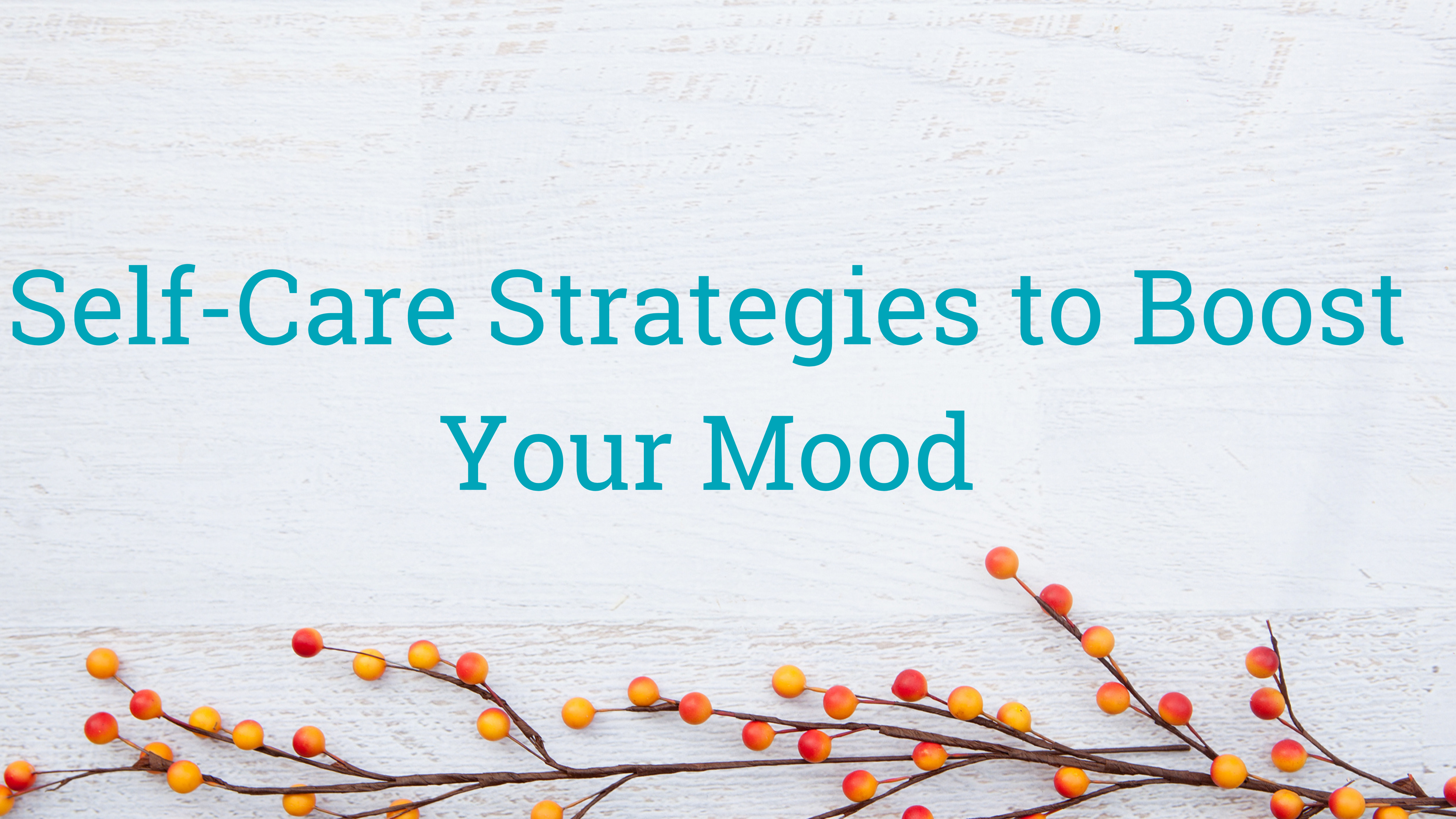
10 Self-Care Ideas to Try If You’re Feeling Sad This Thanksgiving
Holidays can be a time of joy and togetherness, but sometimes holidays can be stressful or even sad. Spending the holiday alone may be the result of conflicting schedules, familial issues, or the financial strain of traveling. This year, however, the COVID-19 pandemic has halted Thanksgiving plans across the globe. Regardless of what’s having you feel a little blue this Thanksgiving, it’s important to focus on the things you are grateful for — and that includes yourself too! Taking time to practice self-care during the holidays can help make your day a little easier.
1. Make Time for Your Favorite Things
Thanksgiving is just one day, but between all the cleaning, cooking, prepping snacks, decorating, it can consume your weekly agenda. This Thanksgiving, allow time for some of your favorite activities. Even it’s just 30 minutes of knitting, working on a new art project, or reading your favorite book — your favorite things can help you feel good. You can also schedule in fun quarantine-safe activities so your household can join in on the fun too. Check out this list of 17 Thanksgiving Day ideas here.
2. Reframe Your Mindset
If you’re missing out on Thanksgiving with your family — because of travel restrictions or work obligations — try to reframe your mindset. Instead of viewing the day as a missed opportunity, try to see your day as a solo staycation, or even as a day of rest and relaxation.
Bottom line: try to look at the day as one of a gained opportunity (for some well-deserved R&R) rather than a loss.
3. Treat Yourself to Your Favorite Foods
You can even reframe what “Thanksgiving Dinner” looks like. You don’t have to recreate your Grandma’s famous roasted turkey if you don’t want. You might prefer spaghetti and meatballs or French toast and bacon — whatever makes your staycation feel complete.
Even if you indulge in a slice of pumpkin pie, don’t skip your veggies! Eating nutrient-dense meals helps to support your mental health. Salmon, chia seeds, walnuts, and avocados are good for your brain too!
4. Stay Active
Exercise is a well-known mood lifter. Here are some ideas to fit a little physical activity into your Thanksgiving schedule:
- Take a walk around the block. Not only does this provide fresh scenery, but you also benefit from the sunshine and fresh air.
- Turn on a dance workout on YouTube and dance your way to a better mood.
- Play fetch with your dog in the yard.
5. Volunteer Your Time
Did you know that volunteering can boost your mood and help fend off the feelings of depression? Studies show that volunteering is a powerful anti-depressant, and even with restrictions this year, you can find ways to volunteer. You might:
- Make cards for a nursing home
- Offer to walk dogs at an animal shelter
- Participate in virtual volunteer opportunities
6. Find Something That Makes You Laugh
Whether you giggle to yourself or let a big guffaw, laughing can be good medicine. According to the experts at Mayo Clinic, laughter can:
- Reduce stress levels
- Stimulate your heart, lungs, and muscles
- Increases endorphin levels in your brain
- Relax you
- Ease tension in your body
That’s not all, though. Laughter can also boost your immune system, improve your mood, and increase your sense of personal satisfaction. Not too shabby! Treat yourself to a funny movie, sit back, and laugh!
7. Connect with Others

- Facetime or Zoom while you eat dinner. It’s not the same as dining in person, but you can still share in the moment.
- Call a friend or family member and “prep” together. Use your headphones and dice, chop, and bake while engaging in friendly conversation.
- Video conference with your extended family and ask everyone to share one thing they are grateful for this year.
8. Start a Gratitude Journal
Keeping a gratitude journal is a great way to lift your mood. In fact, writing in a gratitude journal is shown to improve emotional resilience and reduce stress. There are many ways to keep a gratitude journal, but here are some tips:
- Journal first thing in the morning to start the day on a positive note
- End the day with a quick reflection about things you were grateful for over the course of the day
- If your child can’t write yet, she or he can draw pictures instead

Does your child want to journal with you? You can download our free printable Gratitude Journal.
Print out the journal and let your child explore the concept of gratitude. With 50+ pages, your child will have nearly two months of journaling!
9. Listen to Music
Studies have shown that listening to music can lift your mood and reduce the feelings of depression. Music can also lower your levels of stress-related hormones (e.g., cortisol). While Time Magazine reports that “calming music” is subjective, the tracks with a slow tempo, gradual chord progressions, and drawn-out notes have the best relaxing effects.
10. Get Help If You Need It
Even with self-care strategies and Zoom calls to feel connected with friends, sometimes it’s not enough to feel better. If you experience the symptoms of depression or anxiety, don’t brush them off. Anxiety and depression can be treated with therapy, medication, and lifestyle changes. With the right support and strategies, you can feel better.
Here at Next Step 2 Mental Health, we provide comprehensive mental health care for children (and adults too!). Whether you are just experiencing depression/anxiety for the first time this year, or you’ve been struggling a while, we can help. Call 502-339-2442 or send us a message to request more information.

1-in-5 Recovering COVID-19 Patients Are Diagnosed with a Mental Illness Within 90 Days
A new study followed 62,354 patients who contracted COVID-19 between January and August
New research published on November 9, 2020 in The Lancet Psychiatry journal shows 20% of people who contracted and recovered from the coronavirus were diagnosed with a mental illness within 14-90 days after testing positive.
Researchers followed 6.8 million patients (62,354 of those patients were diagnosed with COVID-19 between January 20 and August 1, 2020). According to the data, 20% of those who had COVID-19 were later diagnosed with a psychiatric disorder, dementia, anxiety, or insomnia.
Maxine Taquet, PhD et all conclude their report:
“Survivors of COVID-19 appear to be at increased risk of psychiatric sequelae, and a psychiatric diagnosis might be an independent risk factor for COVID-19 […] Although preliminary, our findings have implications for clinical services, and prospective cohort studies are warranted.”
Note that sequelae refers to a condition that develops as the result of a previous disease or injury.
As of this writing, there have been more than 10.9 million confirmed cases of COVID-19 in the United States, according to data compiled by the Centers for Disease Control and Prevention.
You can read the full study here.
We’re Here to Serve You

This is an emerging headline and researchers are calling for more studies to be conducted. In the meantime, please know that our team is available when concerns like these emerge.
At NextStep 2 Mental Health, we’re happy to provide comprehensive psychiatric care. If you or a loved one is struggling with your mental health during this time, we are here to help you — whether your symptoms are new or not. Call 502-339-2442 or fill out this form to request an appointment.
Learn More
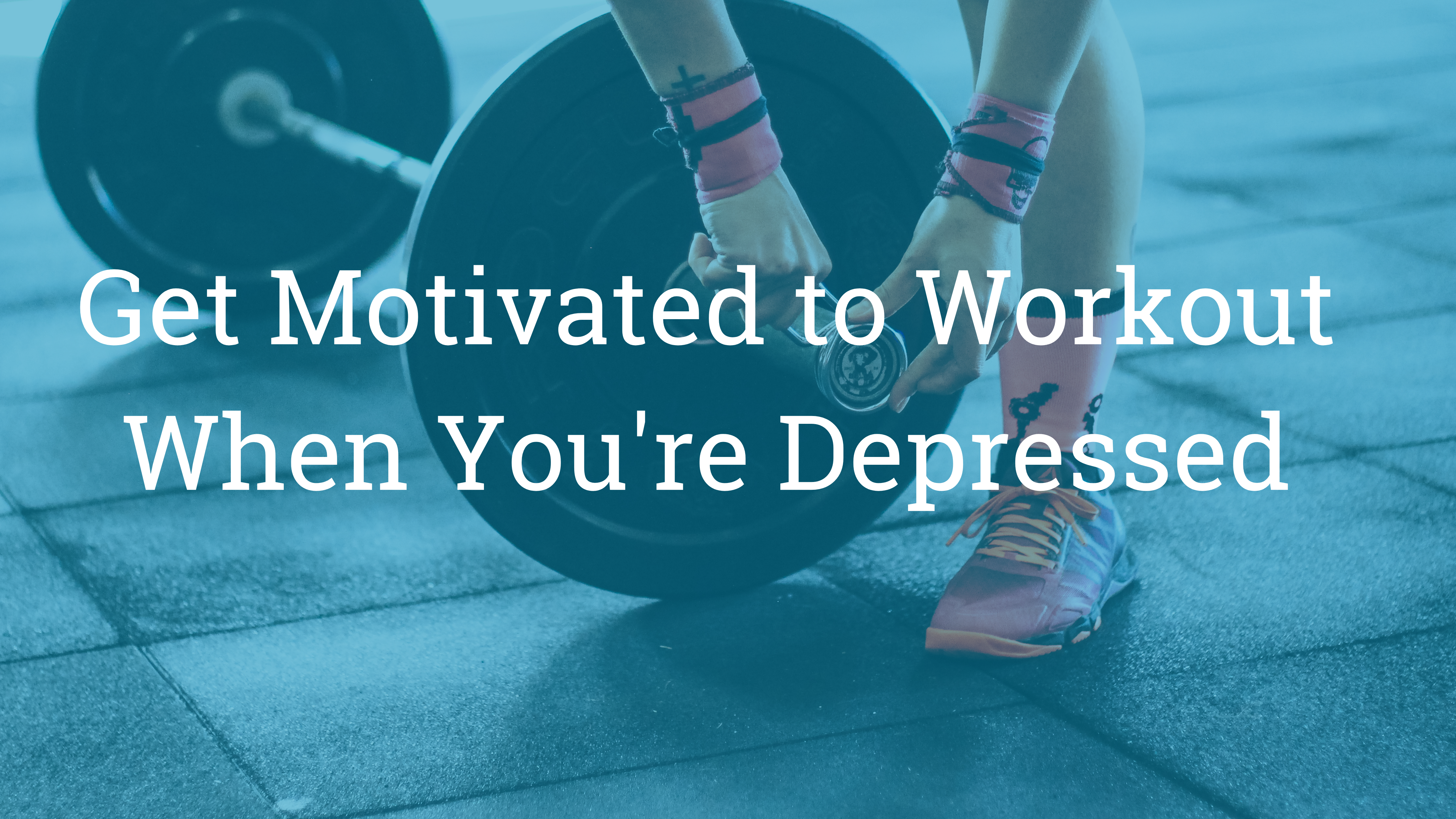
How to Get Yourself to Work Out When You’re Depressed
Whether you’re dealing with seasonal affective disorder, major depressive disorder, postpartum depression, or bipolar depression… it can be hard to motivate yourself to work out.
Yet…exercise is one of the best things you can do to support your health — and that includes your mental health too! But just knowing that exercise is good for you isn’t always enough to get the sneakers on, especially if you’re unmotivated. The truth is that no one is always excited about exercise 100% of the time —and that’s okay—but there are steps you can take if you find it hard to complete everyday tasks.
Depression can grow to be an all-encompassing condition that makes even daily tasks difficult. Depression can lead to indecision, which makes it hard to decide when to exercise or what type of exercise you want to try. Monica Clark, LPA, shares:
“Many people with depression will struggle to make [decisions]. For more complex decisions… a person with depression may feel paralyzed by an inability to decide. Difficulty making decisions may be related to either internal or external fears.”
If you or a loved one are battling depression—or even suspect you might be— our compassionate team here at Next Step 2 Mental Health encourages you to reach out for help. Professional mental healthcare providers can help you learn strategies to make a positive difference in your life, despite the all-consuming nature of depression.
In the meantime, keep reading to explore six strategies to boost your motivation.
Don’t Wait for Motivation
Depression can make even the smallest tasks, like showering, seem daunting. When it comes to exercise, don’t wait for a burst of motivation. Try reversing your thought process. Instead of saying, “I’ll go for a walk when I feel better” try thinking “I’ll go for a walk to help me feel better.” Over time, this will get easier.
You can also post a sticky note on your mirror or next to the couch to remind you to take your daily walk.
Eliminate Every Barrier Possible
If the idea of exercising seems impossible, chances are good that laying out workout clothes isn’t any easier.
In the absence of motivation, there are few things you can do to make this process easier:
- Keep your sneakers by the door and ready to go
- Plan a specific time for your daily walk
- Invite a friend or family member to join you (accountability)
- Go to bed in your workout clothes (so you’re ready first thing in the morning)
Start Small

Exercise doesn’t have to intense marathon training. Your body and your mind benefit from all kinds of physical activity. Even just the simple act of standing up and walking around the house for 10 minutes is a good place to start. Maybe just a walk with your dog around the block. Once you get up and moving, your endorphins start to pump, and you might find yourself wanting to do more. If not, and those laps around the house are all you do in a day, that’s still much better than nothing.
Walking can be very therapeutic. According to a study published in the Primary Care Companion to the Journal of Clinical Psychiatry, walking for 30 minutes per day for 10 days was enough for the study participants to notice a shift in their mood. You don’t have to walk on a treadmill though. You can walk outdoors and get the added benefit of sunshine — which can also boost your mood.
“Any physical activity is better than none,” certified health coach Pam Valdes reminds us.
Join an Exercise Program
According to researchers, individuals with depression who joined an aerobic exercise program experienced:
- Reduced feelings of anxiety
- Reduced depression symptoms
- Improved self-esteem
You can find a variety of aerobic exercise programs both in-person and online.
Recognize Negative Self-Talk
Sometimes negative self-talk can block your desire to work out, and unfortunately, negative self-talk is common among those with depression. However, if you learn to recognize negative thoughts and replace with neutral or positive thoughts to help you take your next step.
Here’s an example of what that might sound like:
- Negative self-talk: “I’m not good at lifting weights, so I won’t even try.”
- Neutral self-talk: “This is challenging, but that’s okay.”
- Positive self-talk: “I am strong, and each day, I continue to strengthen my muscles. I can do this.”
You can learn more about self-talk and depression in “Overcoming the Negative Self-Talk Cycles of Depression.”
Recognize Your Accomplishments
When you’re feeling depressed, any physical activity is a major win. Celebrate all of your accomplishments — big or small.
You might consider keeping a calendar and marking each day you exercise. Maybe you use a check mark, a gold star sticker, or the simple phrase, “I exercised today.” When you look back and see all of the days that did work out, it can boost positive feelings about yourself — and that can be a good motivator to keep it up.
You can also share your accomplishments with friends, family members, or any accountability/workout buddies.
When Depression Prevent Exercise: Find Treatment That Works
At Next Step, we know how profoundly depression can impact all aspects of your life. Our compassionate, non-judgmental team offers a variety of depression treatments, including medication and therapy.
If depression is keeping you from your potential, we can help. Call our Louisville, Kentucky office at 502-339-2442. You can also request an appointment online.
Learn More
5 Tips for Safeguarding Your Mental Health This Thanksgiving
Even though Thanksgiving is regarded as a time of togetherness, gratitude, and joy, there are many reasons why the holidays may be anything but bliss. This year in particular may look a little different than previous Thanksgivings, especially if quarantines and travel restrictions prevent you from gathering as you normally would. In addition to the unique challenges of 2020, holidays can be tough for another reason: holiday blues and added stress. According to a survey conducted by the American Psychological Association (APA), almost 38% of individuals polled listed stress as the #1 reason their mental wellness dipped during the holiday season.
Here are Next Step 2 Mental Health, our team of providers is here to support your mental health — no matter what season or holiday we approach. In this article, we’ll explore five ways for you to safeguard your mental health this Thanksgiving.
1. Prioritize sleep
If you’re hosting Thanksgiving, you might be busy cleaning, decorating, and planning. However, don’t let the excitement and busy-ness of the day prevent you from getting enough sleep. Constantly running on not enough sleep can impact your mental and physical well-being. Specifically, research links sleep deprivation with increased rates of insomnia as well as increased irritability.
WHAT TO DO: Aim for 7-9 hours of sleep in a cool, dark room. Avoid using any blue lights (e.g., TV, tablets, phone) for 1-2 hours before bed. You can learn more about the effects of blue and warm lights on your sleep in this article: Do Warm-Colored Lights Help You Sleep Better?
2. Stick with your normal routine
For individuals with ADHD, sticking with your normal routine each day is essential. However, a daily routine is important if you have other mental health conditions, including depression, anxiety, OCD, and bipolar disorder. According to a study published in Lancet Psychiatry, creating (and sticking with) a daily routine improves your ability to sleep at night, reduces emotional difficulties, and supports overall mental health.
WHAT TO DO: Holidays, however, can create many opportunities to detract from your normal routine. Try to stick with your normal routine as much as possible. The National Alliance Of Mental Health (NAMI) recognizes that this can be hard during holidays; however, they suggest to adhere to your routine as much as possible. For example, even if you plan a Thanksgiving dinner with family in the evening, don’t skip your normal morning routine.
A quick note about your medications: If you take daily medication, continue to stick with your medication schedule even during the holidays. You shouldn’t skip your dose or alter your medication schedule unless instructed to do so. Consider setting a reminder on your phone if you think the schedule disruptions might cause you to forget a dose.
3. Create a Budget for Thanksgiving Décor or Meals

Stress has an undeniable impact on your mental well-being, and Thanksgiving can add financial stress to your list of concerns. If the thought of unexpected purchases adds to your stress load, create a budget for any out-of-the-norm purchases — things that normally aren’t your monthly budget. This can include decorations and food for your parties. Once you create your budget, stick with it!
If you plan on doing any holiday shopping after Thanksgiving, add that to your budget too.
4. Don’t Skip Your Workout

There’s an unending list of the benefits of exercise. According to research published in the Primary Care Companion for Clinical Psychiatry, exercise boosts your mood, reduces stress levels, and gives you quiet time to decompress and just think.
When it comes to Turkey Day, there are plenty of ways to sneak a little exercise into your day:
- Go for a walk around the block — either alone or with family
- Go for a hike in the morning before your feast
- Toss a football in the yard
- Walk your dog and go around the block a few extra times
- Start the day with an online exercise program
- Crank up the radio and dance
If the weather is nice, head outside for your workout. The experts at Harvard share that time spent in nature can boost your mood.
Need more ideas? Read this blog: 4 Ways to Stay Active This Fall.
5. Practice Healthy Stress Management Techniques
Even if you try every tip on this list, it’s not possible to eliminate every source of stress, and that’s okay. The best strategy is to reduce what stress you can and then manage the rest of it with healthy stress management techniques.
During Thanksgiving (or any other stressful situation), it might be tempting to relieve stress by pouring an extra drink, using food as comfort, or even taking drugs to relax. These coping mechanisms may cause more problems in the long run. However, you can prepare by coming up with a list of healthy outlets for stress. MentalHealth.gov suggests getting fresh air, exercise, meditating, reading a relaxing book, doing art, and practicing deep breathing exercises.
You can also find help by:
- Talking with a friend or loved one
- Talking to a therapist
The takeaway: instead of relying on alcohol, drugs, smoking, or even food, protect your mental health by relying on healthy, evidence-based stress management techniques.
Don’t Enter the Holiday Season Unprepared
If you’re struggling with depression, anxiety, or another mental illness, we can help you get the treatment you deserve. At Next Step 2 Mental Health, it’s our mission to help you live a happier life, a better life.
Give us a call at our Louisville, Kentucky office at 502-339-2442, or send us a message to request more information.
Learn More
